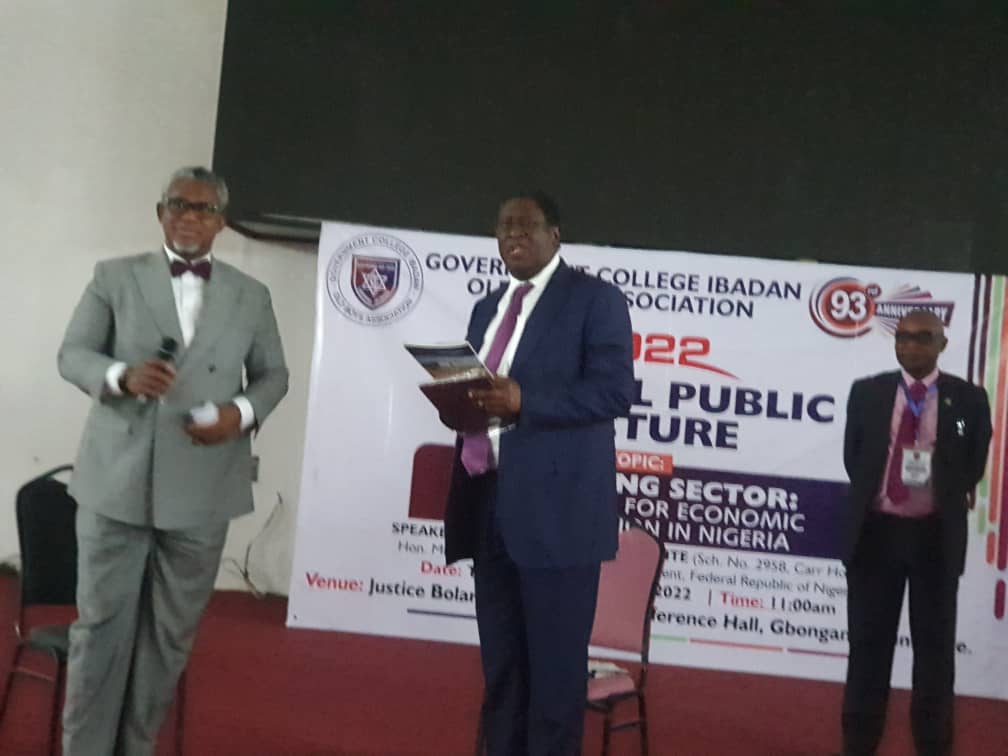-Puts Italy at Odds with OECD’s Anti-Bribery Convention
By Ruth Tene Natsa, Abuja
The Organisation for Economic Co-Operation and Development (OECD), Working Group has expressed “extreme concern” over the “systematic rejection of circumstantial evidence” by judges in a number of foreign bribery cases, including the OPL 245 case.
They said the rejection makes convictions nigh on impossible.
The Working Group was particularly concerned that the court had held that the companies could not be liable for foreign bribery if the bribes were paid as a result of a corrupt agreement between former oil Minister Dan Etete (who held the license that the companies sought to purchase) and Nigerian officials.
Describing the reasoning in these cases as demonstrating a “troubling pattern”, the Working Group tears into the practice of examining “each piece of circumstantial evidence in isolation”, with “arguably speculative and uncorroborated” explanations then being put forward which do not stand up to scrutiny if the facts are considered as a whole rather than separately.
In the recent trial of oil giants Shell and Eni, who were controversially acquitted in 2021 of bribing Nigerian officials to obtain a licence to the OPL 245 offshore oil field, the Working Group explicitly states that elements of the judgment did “not conform to the Convention”
In an excoriating report [1] published today, the OECD’s Working Group on Bribery, which acts as guardian of the Convention, concludes: “The Working Group indeed considered in the past that Italy’s foreign bribery offence complied with the Convention. But this was before the spate of recent acquittals that created jurisprudence on the offence.”
The Working Group also warns that interpretations of Italian law that require clear proof of an agreement to bribe (for example, through video evidence) have placed Italy at odds with the OECD Convention.
The OECD recommends that Italy change its laws to bring them back into line with the OECD Convention and provide training for judges to acquaint them with the Convention’s provisions.
Again, the OPL 245 case is cited as illustrative of the Working Group’s concerns: “Half of the purchase money was laundered through multiple cash transfers to currency exchanges and then distributed, including to one official to purchase a USD 4.5 million property. It was nevertheless, found that the property was compensation for legal services rendered earlier by the official when he was a practising lawyer.
However, the judgment did not refer to any documentary evidence (e.g. invoices) of the services rendered or the debt owed. It is also undoubtedly odd to pay for legitimate legal services with a sale of real property funded by numerous small cash payments cycled through money exchanges. A single direct cash transfer from the debtor to the official would have been more logical. The debtor in this case certainly had the means to pay the official directly: he had just pocketed USD 400 million from the sale of the oil prospecting licence. In the same case, while internal company emails contained language suggestive of bribery, the reasons for the acquittals repeatedly adopted exculpatory interpretations of the correspondence.”
“A Nigerian human rights and anti-corruption group Olanrewaju Suraju of HEDA who said the OECD report is utterly damning” noted that “The acquittal of Shell, Eni and other defendants in Italy must now be in doubt. Instead of upholding the OECD Convention, the judges shredded it”.
Antonio Tricarico of the Italian non-governmental organisation ReCommon opined that “The OECD vindicates our warning that Italy moved away from the OECD Convention”, “It is a clear slap in the face of Italian judges and the Appeal Prosecutor dealing with the Opl245 case. Italy’s Supreme Council of Magistrates and Italy’s Minister of Justice should urgently open an investigation on their wrongdoing to restore Italy’s credibility internationally”
Nicholas Hildyard of the UK group Corner House Research said “OECD Peer reviews are taken very seriously. Italy has effectively been put into special measures by the OECD. Urgent action is required if its credibility is to be restored. A first step would be to halt the malicious investigations into the prosecutors who sought to hold Shell and Eni to account.”






